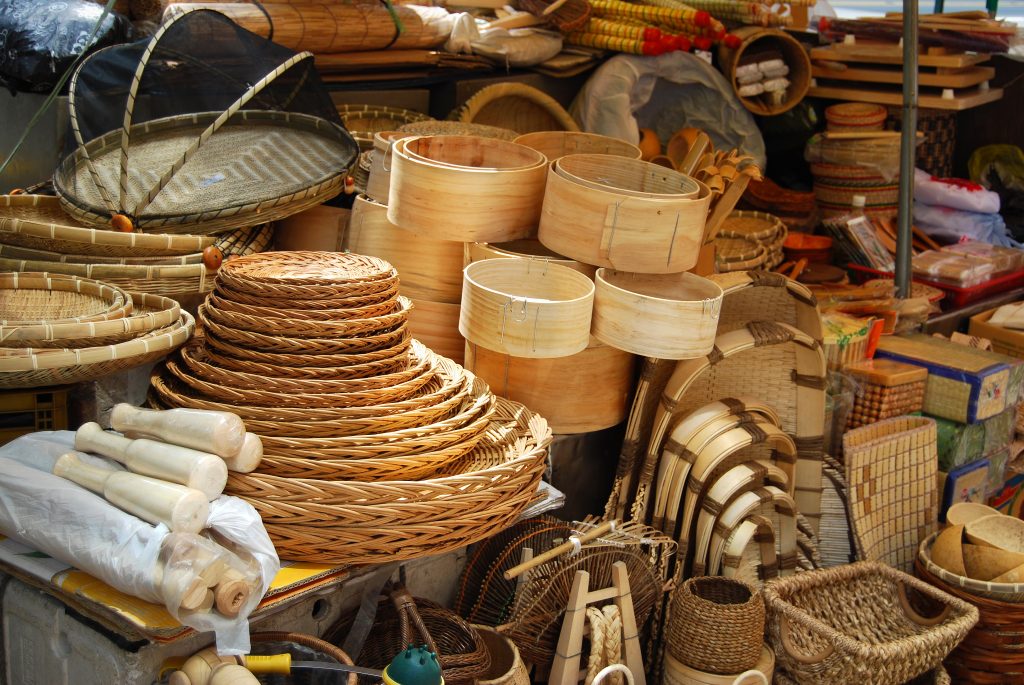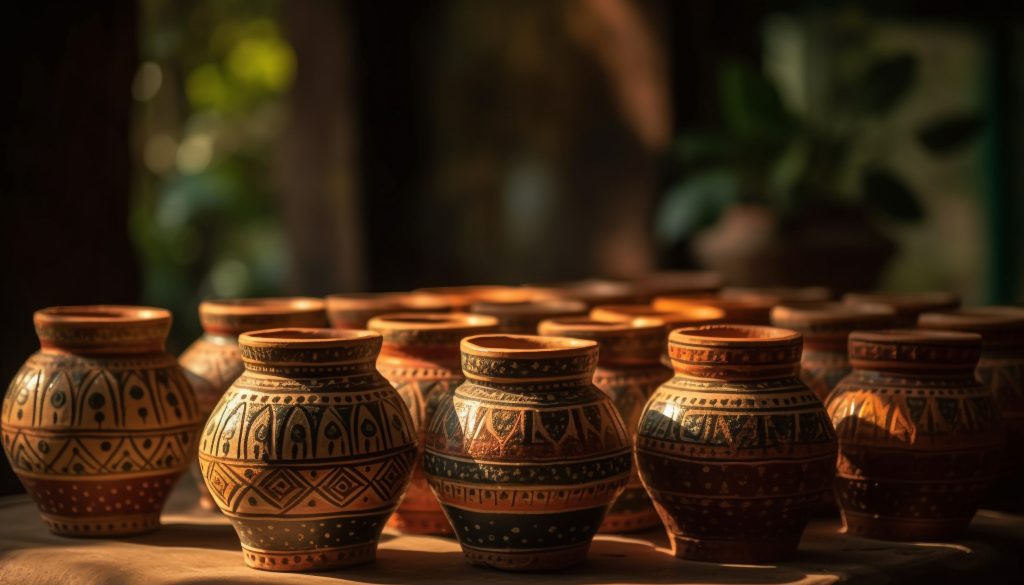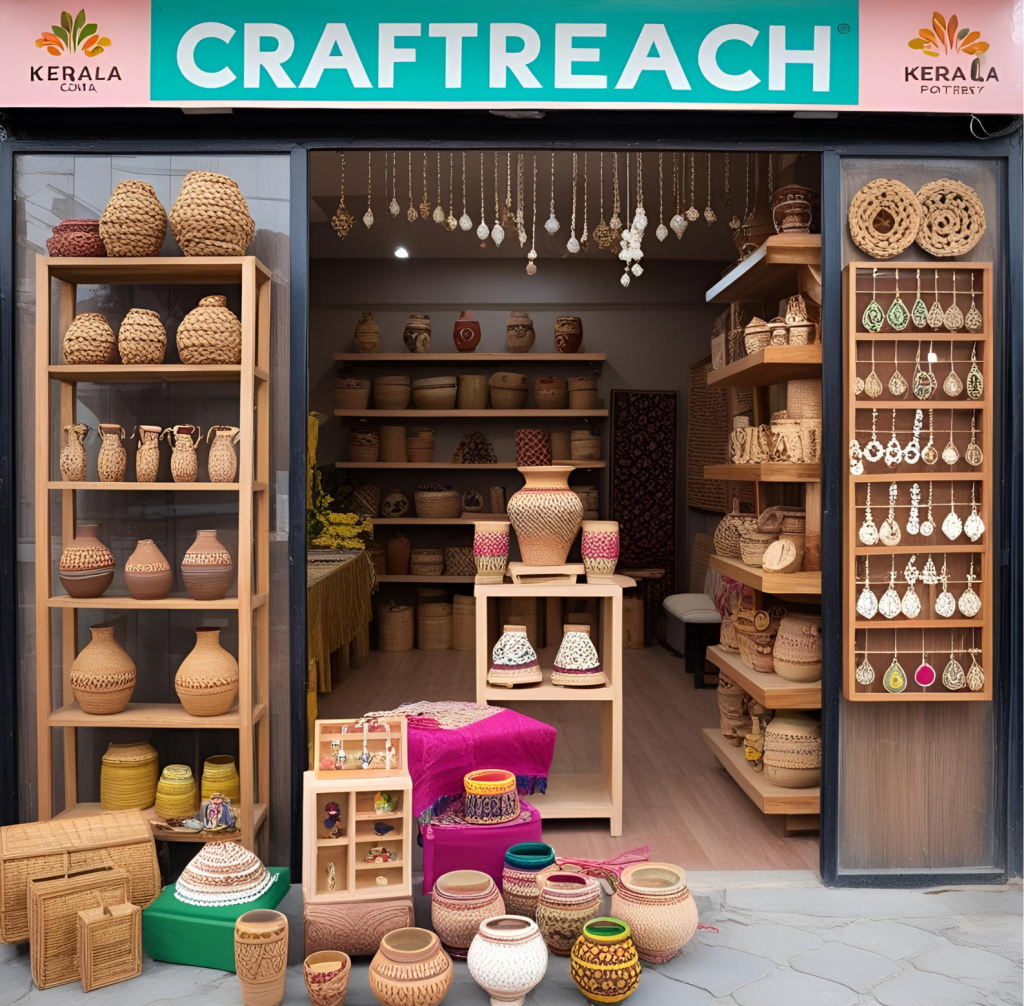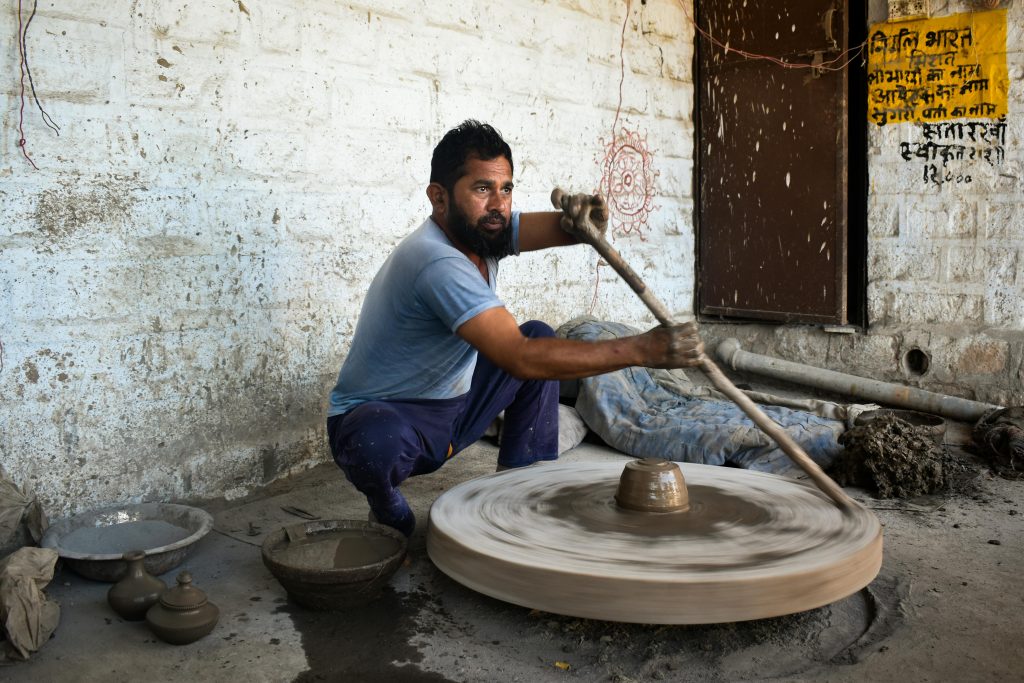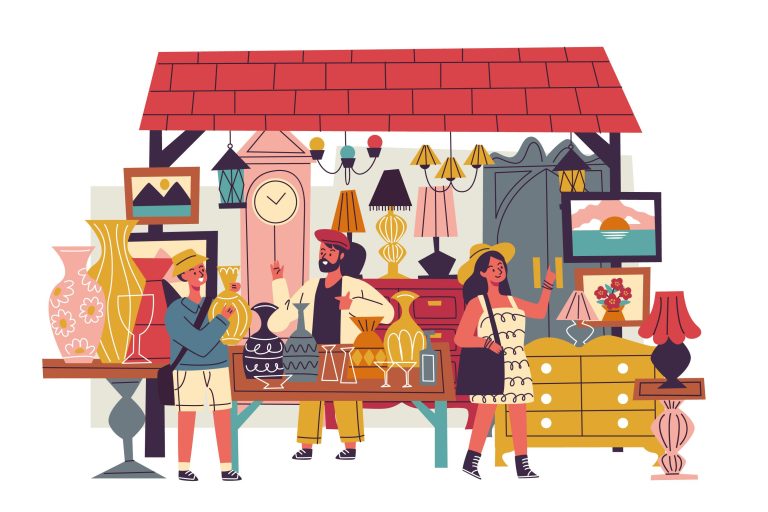
Aranmula Kannadi (Metal Mirror)
Origin: Aranmula, Pathanamthitta
Material: A unique alloy of copper and tin (no glass used!)
This 500-year-old craft produces the famed Aranmula Kannadi, a hand-polished metal mirror with mythological roots. Unlike glass mirrors, these reflect images without distortion and are considered sacred, often used in temples and rituals.
Why It’s Special:
✔ Only a handful of artisan families keep this tradition alive.
✔ Each mirror takes weeks to craft—making it a prized collector’s item.
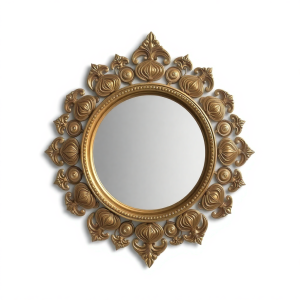
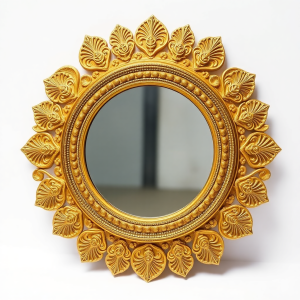
Coir Products (Coconut Fiber Crafts)
Origin: Coastal Kerala
Material: Coconut husk fiber
Kerala’s coir industry is one of the oldest in the world, producing eco-friendly mats, rugs, baskets, and even toys. The fiber is extracted, spun, and woven by hand, creating durable, biodegradable products.
Why It’s Special:
✔ 100% sustainable—prevents coconut waste.
✔ Water-resistant, perfect for home décor.
Popular Items: Coir doormats, hanging planters, and table runners.
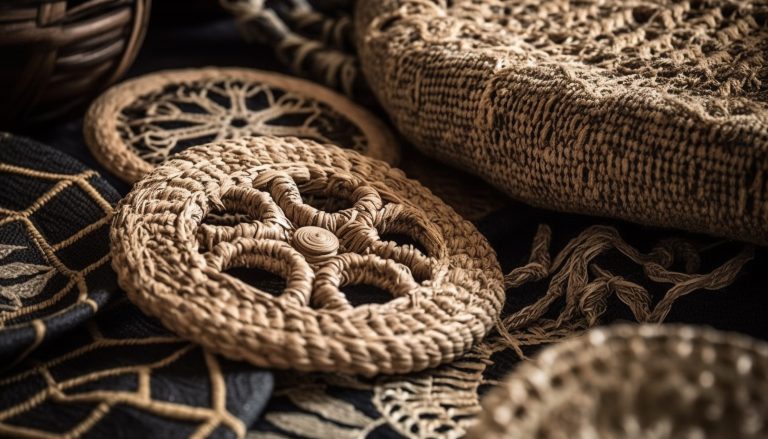
Kathakali Masks & Puppets
Origin: Thrissur, Kottayam
Material: Wood, papier-mâché, and natural dyes
Inspired by Kerala’s classical Kathakali dance-drama, these vibrantly painted masks and puppets depict gods, demons, and epic characters. Artisans spend days carving and hand-painting each piece.
Why It’s Special:
✔ A striking fusion of art and performance.
✔ Great as wall art or cultural souvenirs.
Nettur Petti (Traditional Jewelry Boxes)
Origin: Thiruvananthapuram
Material: Rosewood, brass, and velvet
These intricately carved wooden boxes, lined with velvet, were once used by royal families to store jewelry. Today, they’re a symbol of Kerala’s woodworking mastery.
Why It’s Special:
✔ Secret compartments and fine brass embellishments.
✔ Doubles as a vintage home décor piece.
Screw Pine (Korai) Weaving
Origin: Alappuzha, Kollam
Material: Screw pine leaves
Rural artisans weave soft, fragrant mats (called ‘paya’) from dried screw pine leaves. These mats are naturally cooling and used in traditional Kerala households.
Why It’s Special:
✔ Chemical-free, hypoallergenic, and biodegradable.
✔ Lightweight and foldable—ideal for modern homes.
New Designs: Now available as bags, coasters, and table mats.
Bell Metal Crafts (Valkannadi & Lamps)
Origin: Palakkad, Ernakulam
Material: Bronze (bell metal alloy)
Kerala’s bell metal artisans create ritual lamps (Nilavilakku), mirrors (Valkannadi), and temple bells. The metal’s resonant quality is believed to purify spaces.
Why It’s Special:
✔ Each piece is hand-cast using ancient lost-wax techniques.
✔ The alloy never rusts—lasting for generations.
Best For: Spiritual décor or heirloom collections.
Kasavu Mundu & Settu Mundu (Traditional Attire)
Origin: Balaramapuram, Thiruvananthapuram
Material: Handwoven cotton with gold zari
The iconic cream-and-gold Kasavu sarees and mundus are Kerala’s signature handloom textiles, worn during festivals like Onam and Vishu.
Why It’s Special:
✔ Woven on traditional wooden looms.
✔ The gold border (kasavu) is pure or semi-pure zari.
Coconut Shell Crafts
Origin: Coastal villages
Material: Coconut shells
From bowls and lamps to jewelry and figurines, Kerala’s coconut shell crafts turn waste into beauty. The shells are polished, carved, and assembled by hand.
Why It’s Special:
✔ Zero-waste, eco-friendly art.
✔ Lightweight yet durable.
Toddy Palm Leaf Paintings (Ezhuthu Kalam)
Origin: Kanyakumari border villages
Material: Dried palm leaves
These scroll-style paintings depict mythological scenes, etched with a stylus and filled with natural dyes.
Why It’s Special:
✔ One of Kerala’s oldest folk art forms.
✔ Fades naturally over time, symbolizing life’s impermanence.
Rosewood & Sandalwood Carvings
Origin: Ernakulam, Thrissur
Material: Rosewood, sandalwood
Kerala’s woodcarvers create elegant furniture, temple idols, and figurines with intricate detailing. Sandalwood’s natural fragrance adds to its allure.
Why It’s Special:
✔ Each piece is unique—no machine replication.
✔ Sandalwood carvings are naturally aromatic.
